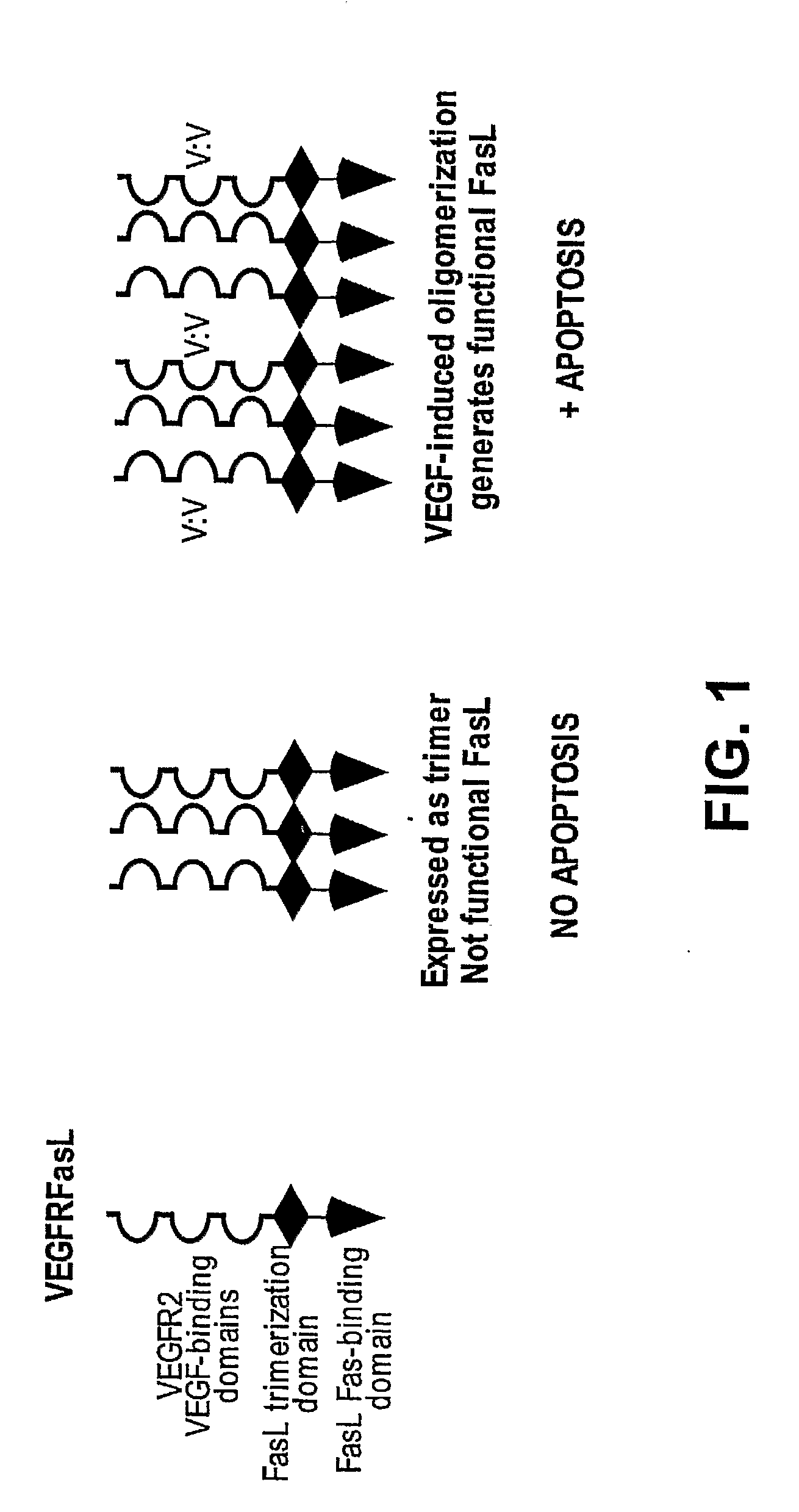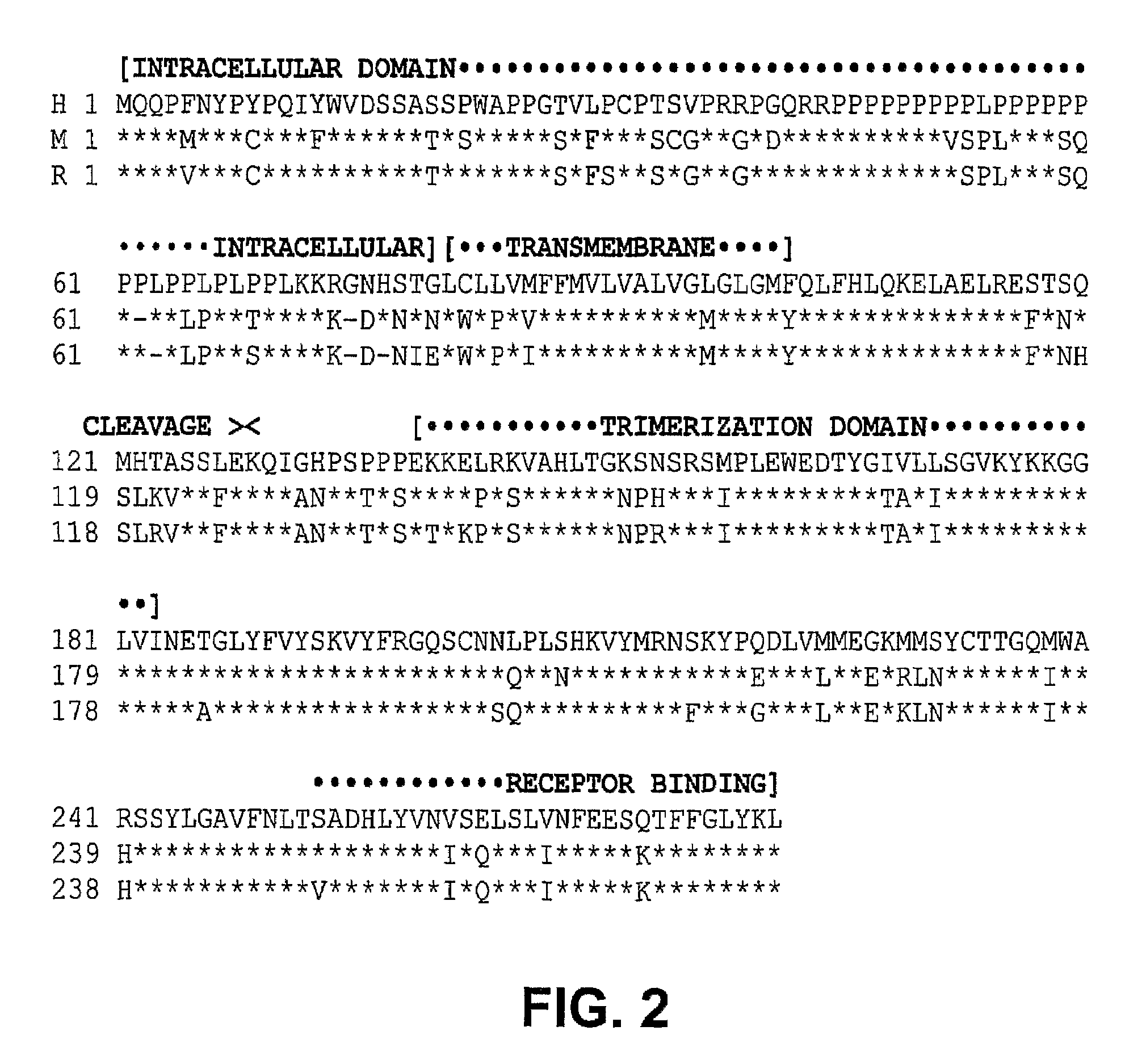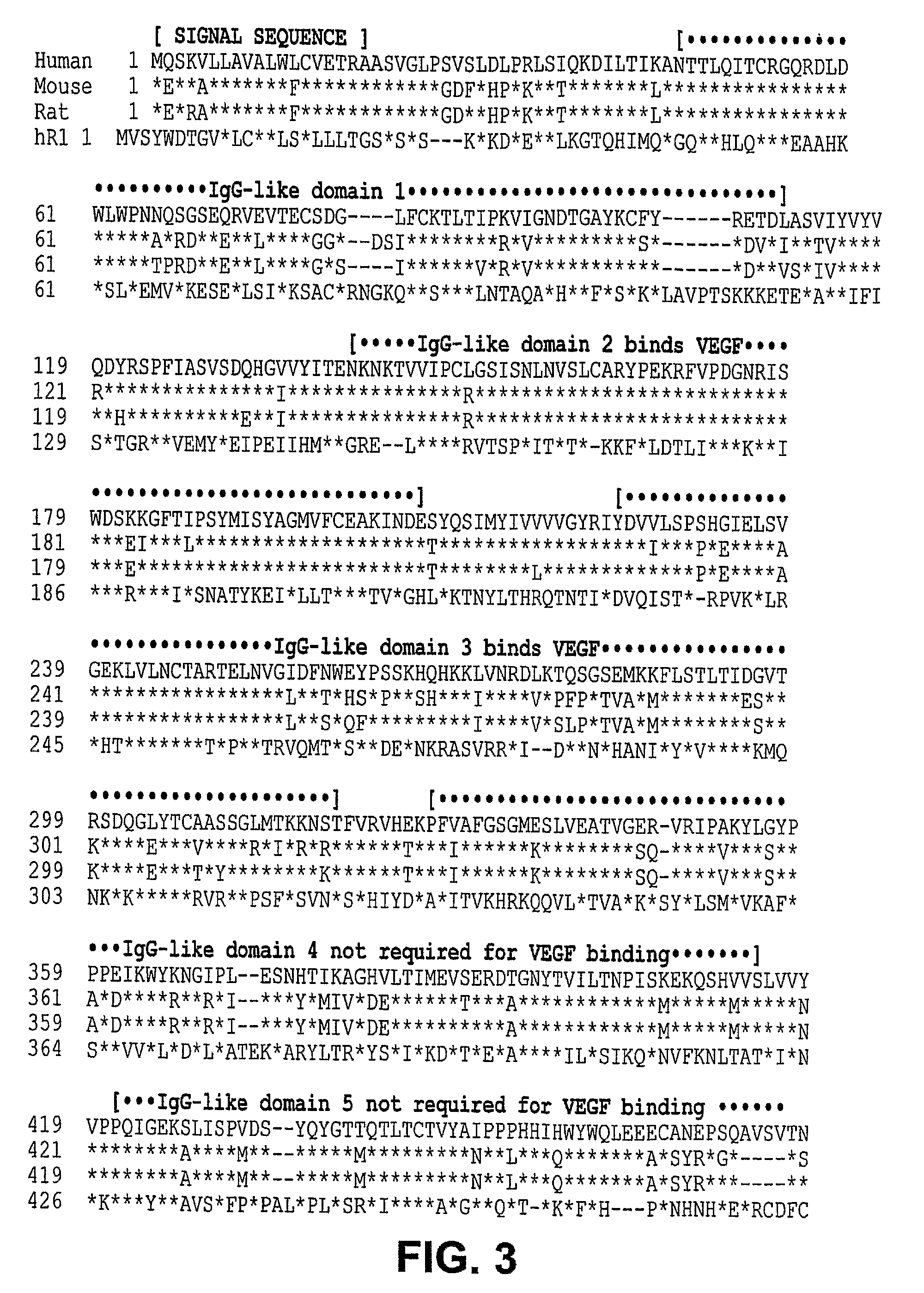Vegf-activated fas ligands
- Summary
- Abstract
- Description
- Claims
- Application Information
AI Technical Summary
Benefits of technology
Problems solved by technology
Method used
Image
Examples
example 1
Material and Methods
[0279]1. General Recombinant DNA Methods
[0280]Unless otherwise indicated, for generating nucleic acids encoding the fusion proteins of the present invention and for expression of the fusion proteins, routine techniques in the field of recombinant genetics were employed. Basic texts disclosing the general methods of use in this invention include Sambrook & Russell, Molecular Cloning, A Laboratory Manual (3rd Ed, 2001); Kriegler, Gene Transfer and Expression: A Laboratory Manual (1990); and Current Protocols in Molecular Biology (Ausubel et al., eds., 1994-1999).
[0281]For nucleic acids, sizes are given in either kilobases (kb) or base pairs (bp). These are estimates derived from agarose or acrylamide gel electrophoresis, from sequenced nucleic acids, or from published DNA sequences. For proteins, sizes are given in kilodaltons (kDa) or amino acid residue numbers. Proteins sizes are estimated from gel electrophoresis, from sequenced proteins, from derived amino acid...
example 2
Construction of Nucleic Acids Encoding A Chimeric Mouse / Human VEGFR / FasL Fusion Protein
[0298]The pBJ plasmid encoding FlkFasL, pBJ / Flk(D1-D3)+FasL(139-281), was constructed in a stepwise manner. First, PCR was performed to amplify the human FasL sequence encoding amino acids 139-281 with flanking 5′ Xho I / Spe 1 and 3′ Bgl II / Xba I sites. The PCR fragment was digested with Xho I and Xba I, and subcloned into the pBJ mammalian expression vector at Xho I and Xba I sites to create pBJ / hFasL(139-281)(FIG. 6). This plasmid was then cut with Xho I, and into it was subcloned the Xho I / Xho I fragment from the plasmid LNCX / Flk(1-3)HA, which included the Flk-1 signal sequence and immunoglobulin-like domains 1-3. The resulting plasmid pBJ / Flk(D1-D3)+FasL(139-281) (FIG. 5) contains the FlkFasL nucleotide sequence shown in FIG. 7.
[0299]The plasmid pBJ / Flk(D1-D3)+FasL(139-281) encodes the VEGFR-2-FasL fusion protein having an amino acid sequence shown in FIG. 8.
example 3
Construction of Nucleic Acids Encoding Chimeric Mouse / Human FLAG-VEGFR / FasL Fusion Proteins
[0300]To generate a plasmid expressing FlkFasL with a FLAG epitope tag, pFLAG / FlkbFasL (D1-D3 / 139-281; FIG. 6), the pFLAG-CMV-3 vector was purchased from SIGMA. As shown in FIG. 6, the pFLAG-CMV-3 vector was cut with NotI and the ends filled in with Klenow enzyme. The plasmid pBJ / FlkFasL (D1-D3 / 139-281) was cut with AvaI and blunted with Mung bean nuclease. The resulting fragment encodes the Flk-1 extracellular domain from amino acid Ala-19, at the end of the signal sequence, to Ser-336 at the end of domain 3. Ligation of the AvaI / Mung fragment into NotI / Klenow-treated pFLAG-CMV-3 produces pFLAG-Flk(D1-D3), in which the Flk-1 sequence is placed in-frame downstream of the nucleotides encoding the FLAG epitope tag. To complete the assembly of the FlkFasL cDNA in the pFLAG vector, the BspEI / Bgl II fragment from pBJ / FLkFasL (D1-D3 / 139-281) was subcloned in. The final plasmid, pFLAG-FlkFasL, encode...
PUM
| Property | Measurement | Unit |
|---|---|---|
| Fraction | aaaaa | aaaaa |
| Chemotherapeutic properties | aaaaa | aaaaa |
Abstract
Description
Claims
Application Information
 Login to View More
Login to View More - R&D
- Intellectual Property
- Life Sciences
- Materials
- Tech Scout
- Unparalleled Data Quality
- Higher Quality Content
- 60% Fewer Hallucinations
Browse by: Latest US Patents, China's latest patents, Technical Efficacy Thesaurus, Application Domain, Technology Topic, Popular Technical Reports.
© 2025 PatSnap. All rights reserved.Legal|Privacy policy|Modern Slavery Act Transparency Statement|Sitemap|About US| Contact US: help@patsnap.com



